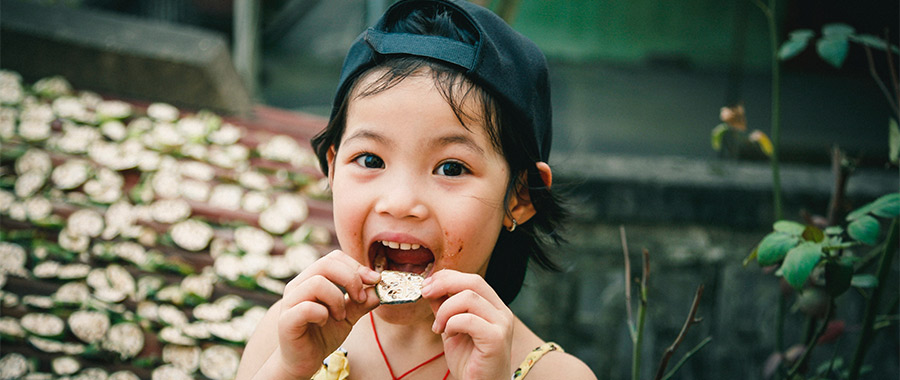In the modern age, the intersection of childhood development and religious education presents a compelling dichotomy. Many parents grapple with the question: does religion help or hamper children spiritually? Within the Bahá’í framework, this inquiry unveils significant opportunities for growth, broader perceptions, and transformative empowerment through spiritual teachings. This article explores the multifaceted implications of Bahá’í teachings on children’s spiritual upbringing, fostering a deeper understanding of how spirituality can be manifested in daily life.
At its core, the Bahá’í Faith posits that religion serves as a guiding light, an ever-evolving source of wisdom that cultivates spiritual awareness. This perspective encourages individuals to transcend conventional boundaries, fostering a sense of interconnectedness among humanity. Spiritual education, free from dogmatic constraints, can potentially nurture children’s burgeoning consciousness, equipping them to navigate the complexities of life. But how precisely does this happen?
Firstly, Bahá’í teachings advocate for the importance of spiritual education as a vital component of a child’s overall development. The belief that every child possesses inherent nobility and potential juxtaposes traditional paradigms that may inadvertently suppress individuality. By embracing these teachings, parents can encourage a child’s innate curiosity about the world around them. This initiative enables young minds to seek answers, ask profound questions, and explore the deeper significance of existence without the fear of judgment or rejection.
Another critical aspect of the Bahá’í approach is its commitment to fostering moral excellence through spiritual principles. Children taught Bahá’í values learn the significance of virtues such as kindness, honesty, compassion, and justice. Such virtues serve as ethical cornerstones, steering young individuals towards a more profound understanding of their responsibilities to themselves and society. To illustrate, when guided by principles of justice and equity, children are more likely to cultivate empathy, fostering harmonious relationships with their peers—an essential skill in an increasingly interconnected global community.
Moreover, the emphasis on community is intrinsic to Bahá’í teachings. Within this framework, the family and community functions as a primary vehicle for imparting spiritual and moral education. It is not merely a solitary journey; rather, children are encouraged to engage actively with their peers and participate in collective endeavors. This collective participation engenders a sense of belonging, strengthening social bonds, and cultivating a communal spirit that is vital for holistic development.
It is salient to consider the balance between structure and freedom inherent in spiritual education. Bahá’í teachings promote a harmonious coexistence of guidance with autonomy. By allowing children the freedom to explore their spirituality while providing the foundational structures of Bahá’í laws and principles, parents can help instill a sense of agency in their children. For example, children might engage in community service, where they experience the joy of selflessness and learn the importance of contributing positively to society. Thus, the balance between guidance and freedom potentially empowers children, allowing them to internalize these concepts and apply them in their lives.
Contrarily, it is essential to acknowledge the possible hindrances that can emerge within a religious framework. For some, rigid interpretations of spiritual teachings may lead to feelings of guilt, fear, or inadequacy—a sentiment that can be detrimental to a child’s spiritual health. Within the Bahá’í context, the emphasis is placed on knowledge and reason over mere belief, urging adherents to engage critically with their faith. Therefore, the potential for hampering spiritual growth lies not in the teachings themselves but in the manner in which they are interpreted and conveyed. Open discussions about doubts, and the diverse expressions of faith can mitigate these adverse impacts, fostering a more inclusive understanding.
Bahá’í teachings also challenge the notion of exclusivity in religious identity. By asserting the oneness of humanity, Bahá’ís promote an environment where children learn to appreciate diverse beliefs and practices. This exposure can profoundly enrich a young person’s spiritual life, cultivating respect and tolerance towards others. It can also mitigate feelings of isolation, fostering global citizenship that celebrates diversity. Indeed, spiritual teachings that emphasize unity and interdependence enable children to thrive in pluralistic societies.
Furthermore, Bahá’í perspectives encourage the pursuit of knowledge as a lifelong endeavor—an essential tenet in nurturing inquisitive minds. Children raised in an environment that values both spiritual and material knowledge can develop a well-rounded worldview. The integration of science and religion—another paramount principle of the Bahá’í Faith—invites children to explore the empirical world while simultaneously contemplating their spiritual existence, fostering a holistic perception of their identities.
In conclusion, the deliberation on whether religion helps or hampers children spiritually finds a particularly conducive response within the Bahá’í framework. While the path to spiritual development poses challenges, the rich tapestry of teachings emphasizes empowerment through virtues, community, inquiry, and respect for diversity. By guiding youth along this path, parents can help nurture spiritually aware, compassionate, and ethically sound individuals who are equipped to contribute positively to society and navigate the complexities of life with grace. The promise of a shift in perspective lies within these teachings, inviting curiosity and engagement with the world—elements that enrich not only individual lives but humanity at large.
